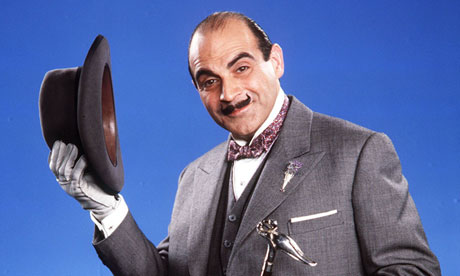Victoria Ward in The Telegraph
Her whodunit murder mysteries have confounded millions of armchair detectives, leading them through a literary maze of twists and turns before a super sleuth finally unmasks the culprit.
But scientists who have studied some of Agatha Christie’s best-selling crime novels claim that that they can be solved with a simple formula, based on the language she uses, the murder weapon, the setting and even the type of vehicle being driven.
A panel of experts analysed 26 of the author’s most famous books, including Death on the Nile, Murder on the Orient Express and The Murder of Roger Ackroyd, concluding that certain plot structures could help the reader identify the killer some time before he or she is dramatically revealed.
The panel, led by Dr Dominique Jeannerod, senior research fellow at the Institute for Collaborative Research in the Humanities at Queens University, found that the culprit was always introduced within the first half of the book, and was likely to be emotionally involved with the victim, most being spouses or blood relatives.
They said that if there were several land vehicles in the story, the killer was likely to be female. Similarly, a prevalence of nautical vehicles suggests they are more likely to be male.
If the victim is strangled, the perpetrator is more likely to be male and if the setting is a country house, there is a 75 per cent chance they will be female.
Christie’s language tends to be more negative when concerned with female killers, who are normally discovered due to a domestic item, they said.
By comparison, men are normally caught using information or logic.
The panel, which also included Dr James Bernthal from the University of Exeter and data analyst Brett Jacob, found that if Hercule Poirot, the eccentric Belgiun detective, took charge of the investigation, and the cause of death was stabbing, the killer will be mentioned more frequently at the beginning of the book.
If Miss Marple is the detective, and the motive for the murder is money or an affair, the killer will be mentioned more in the later stages of the novel than the beginning.
The experts also found that Christie's novels tended to include a “main clue” which is revealed approximately half way through the text and is usually “highlighted as it appears in the text”, so the reader is likely to remember it and will not feel cheated by its later revelation as a clue.
They said a key feature of the author’s writing style was simplicity, using middle-range language and repetition.
The panel also found that the structure of a Christie novel could be reduced to a list of key events: the body will be found early on, a closed group of will be presented to the reader, the detective will then be introduced and a series of red herrings will follow and finally, after it is solved, the story will be wrapped up quickly and efficiently, leaving the reader satisfied.
The research was commissioned by UKTV channel Drama to mark the 125th anniversary of her birth.
Adrian Wills, general manager for Drama said "Agatha Christie is the best-selling novelist of all time, so the television adaptations of her books are hugely popular.
"Given her on-going popularity, we wanted to know her formula for success, especially since the whodunit is such a classic of the crime drama genre.
"We hope that her legions of dedicated fans will revisit their favourite whodunits with a better understanding of how to crack the ultimate code."
